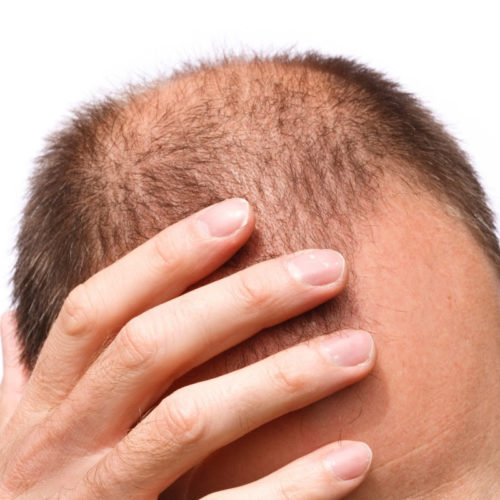Researchers suggested that baldness should be considered a risk factor, dubbing it the ‘Gabrin sign’ By Jennifer Rigby 4 June 2020 • 8:33pm Bald men may be at higher risk of suffering from severe Covid-19 symptoms, emerging evidence suggests. The link is so strong that some researchers are suggesting baldness should be considered a risk...
Tag: <span>hormones</span>
Stem cell topical solution for baldness offers positive trial results
By Rich Haridy May 18, 2020 South Korean researchers have shown a stem-cell-based topical solution can regrow hair in both male and female subjects with common pattern baldness. The small, randomized, placebo-controlled trial found the treatment both safe and effective, with larger trials hoped to validate the results in more diverse populations. The most common...
High levels of two hormones in the blood raise prostate cancer risk
by National Cancer Research Institute Men with higher levels of ‘free’ testosterone and a growth hormone in their blood are more likely to be diagnosed with prostate cancer, according to research presented at the 2019 NCRI Cancer Conference. Other factors such as older age, ethnicity and a family history of the disease are already known...
“Fat Shaming” Won’t Solve Obesity. Science Might
Posted Today Science is with James Corden. Fat shaming shouldn’t make a comeback, and it won’t solve the nation’s obesity epidemic. Through countless published scientific papers, research has continually exposed the complexity of obesity and being overweight, which affects more than 1.9 billion people worldwide. That research has led experts to conclude that potential treatment...
A genetic component in some women breaks down contraceptive hormones
by David Kelly, CU Anschutz Medical Campus Women who get pregnant while using birth control may carry a gene that breaks down the hormones common in contraceptives, according to researchers at the University of Colorado Anschutz Medical Campus. “The findings mark the first time a genetic variant has been associated with birth control,” said the study’s lead author Aaron Lazorwitz, MD, assistant professor of Obstetrics...
Our bodies may cure themselves of diabetes in the future
Researchers have found that neighbour-cells can take over functions of damaged or missing insulin-producing cells; the discovery may lead to new treatments for diabetes. IMAGE: LUIZA GHILA IS DOING RESEARCH ON FLEXIBLE CELLS TO CURE DIABETES. CREDIT: KIM E. ANDREASSEN Diabetes is caused by damaged or non-existing insulin cells inability to produce insulin, a hormone that is...
Levels of sex hormone binding protein could predict risk of developing insulin resistance
New research presented at this year’s annual meeting of the European Association for the Study of Diabetes (EASD) reveals that concentrations of sex hormone binding globulin (SHBG) protein in the blood can be used to predict the development of insulin resistance, which can develop into type 2 diabetes (T2D). High-resolution model of six insulin molecules assembled in a hexamer. Credit: Isaac Yonemoto/Wikipedia The research conducted by Kristin...

